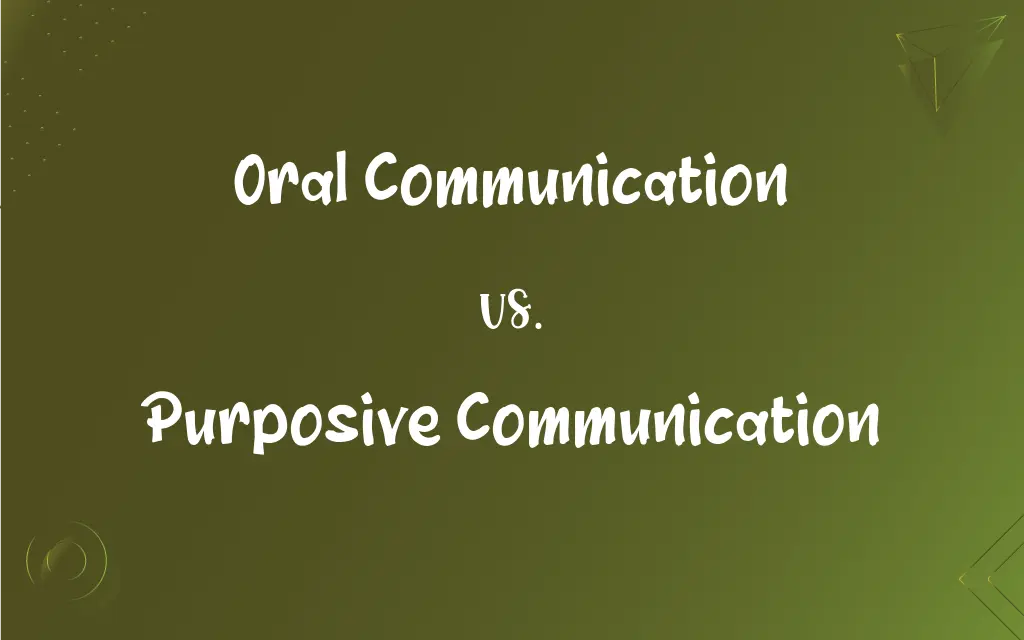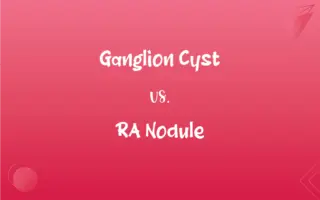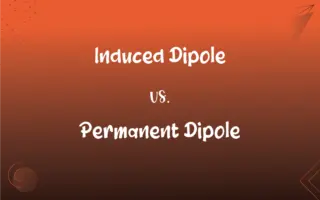Oral Communication vs. Purposive Communication: What's the Difference?
Edited by Aimie Carlson || By Janet White || Published on March 2, 2024
Oral communication involves spoken words for interaction, while purposive communication is any form of communication with a specific intent or goal.

Key Differences
Oral communication refers to the process of verbally transmitting information and ideas from one individual or group to another. Purposive communication, on the other hand, encompasses any form of communication, be it oral, written, or non-verbal, that is carried out with a specific purpose or objective in mind.
The essence of oral communication lies in its use of spoken language to convey messages, which can occur in various settings like meetings, conversations, speeches, and telephonic discussions. Purposive communication, regardless of the medium, is characterized by its goal-oriented nature, aiming to achieve a specific reaction or response from the audience.
Oral communication depends heavily on the tone, clarity, and effectiveness of spoken language, and is often immediate and direct. Purposive communication focuses not just on the content but also on the strategy of delivery to ensure the message aligns with its intended purpose, whether to inform, persuade, instruct, or entertain.
In oral communication, the feedback is usually immediate, allowing for quick adjustments in the conversation. In purposive communication, the effectiveness is measured by how well the intended purpose is achieved, which might not always involve immediate feedback.
Oral communication is limited to verbal exchanges, while purposive communication can take many forms, including written reports, visual presentations, digital communications, and more, all tailored to achieve a specific goal.
ADVERTISEMENT
Comparison Chart
Medium
Spoken words
Any form (spoken, written, visual, etc.)
Primary Characteristic
Use of verbal language
Goal-oriented communication
Feedback
Often immediate
Varies according to purpose and method
Scope
Limited to verbal exchanges
Encompasses various communication forms and strategies
Objective
General communication
Achieving a specific response or outcome
ADVERTISEMENT
Oral Communication and Purposive Communication Definitions
Oral Communication
Effective oral communication depends on clarity of speech.
His oral presentation was effective due to his clear and articulate speech.
Purposive Communication
Encompasses various forms, including oral, written, and visual.
Their purposive communication strategy included social media posts and flyers.
Oral Communication
Used in speeches, discussions, and verbal briefings.
The manager provided instructions to the team through oral communication.
Purposive Communication
Communication with a specific intent or goal.
The campaign used purposive communication to raise awareness.
Oral Communication
Communication through spoken words.
During the meeting, oral communication was used to discuss the project.
Purposive Communication
Can be used to inform, persuade, instruct, or entertain.
The training session utilized purposive communication to educate employees.
Oral Communication
Allows for immediate feedback and interaction.
In the interview, oral communication enabled immediate responses.
Purposive Communication
Involves strategic delivery of content.
The CEO’s speech was a well-crafted example of purposive communication.
Oral Communication
Includes face-to-face conversations and telephonic discussions.
They resolved the issue through a quick oral conversation over the phone.
Purposive Communication
Aims to achieve a particular reaction or response.
The advertisement was a form of purposive communication to attract customers.
FAQs
What defines purposive communication?
Communication carried out with a specific goal or intent.
Can purposive communication be non-verbal?
Yes, it can include non-verbal forms like gestures or visual aids.
Can purposive communication be informal?
Yes, if it serves a specific purpose, even in an informal setting.
What skills are important for effective oral communication?
Clarity of speech, active listening, and effective articulation.
What makes communication purposive?
Its intention to achieve a specific outcome or response.
Can purposive communication be unintentional?
No, it always involves a deliberate intention or goal.
Is oral communication always immediate?
Yes, it typically involves real-time verbal exchanges.
What are barriers to effective oral communication?
Language differences, speech impediments, and distractions.
What is oral communication?
It’s the exchange of information using spoken words.
How is purposive communication used in business?
For targeted messaging, like in advertising or customer communications.
What's a common example of purposive communication?
A marketing campaign designed to increase brand awareness.
How important is listening in oral communication?
Crucial, as it facilitates understanding and response.
How is feedback received in oral communication?
Often immediately, through verbal or non-verbal responses.
Is written communication considered purposive?
Yes, if it’s used to achieve a specific goal.
Can oral communication be planned?
Yes, such as in prepared speeches or structured meetings.
Is body language a part of oral communication?
Yes, non-verbal cues play a role in conveying messages.
What’s a strategy for effective purposive communication?
Clear, targeted messaging aligned with the desired outcome.
Do cultural factors influence oral communication?
Yes, cultural norms can affect how verbal messages are conveyed and interpreted.
What role does tone play in oral communication?
Tone can convey emotions and clarify the intent behind words.
How does context affect purposive communication?
The context determines the strategy and form of communication to meet the goal.
About Author
Written by
Janet WhiteJanet White has been an esteemed writer and blogger for Difference Wiki. Holding a Master's degree in Science and Medical Journalism from the prestigious Boston University, she has consistently demonstrated her expertise and passion for her field. When she's not immersed in her work, Janet relishes her time exercising, delving into a good book, and cherishing moments with friends and family.
Edited by
Aimie CarlsonAimie Carlson, holding a master's degree in English literature, is a fervent English language enthusiast. She lends her writing talents to Difference Wiki, a prominent website that specializes in comparisons, offering readers insightful analyses that both captivate and inform.































































